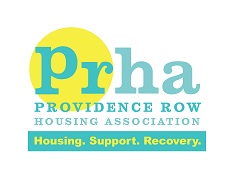We own and manage over 500 bed spaces in supported accommodation. When coming into these spaces, new residents may have had bad experiences of becoming homeless for various reasons and these may include: being unable to cope with managing the finances and paying their bills. They may have experienced problems with their neighbours.
Quite often these problems are symptoms of underlying issues such as a lack of life-skills, made worse by problems around substance misuse or mental health, which are compounded by the lack of any guidance or support.
At PRHA, whenever a new resident moves into Supported Accommodation, we will make sure that they are thoroughly assessed and provide them with an appropriate support package, which will include support and advice on settling in to a new home, how to manage their money and pay their bills and to help them develop the necessary skills which will allow them to maintain their tenancy in a positive way. If we help people to develop in this way, we believe we can break the continuous cycle of homelessness and poor physical and mental health once and for all.
Moving on
Once a resident feels that they have gained the skills that they need, they will be helped to move into more permanent accommodation. We will continue to support them in their new home until they have settled in. We also ensure that the resident knows that they can seek help from PRHA should they need to do so again.
“PRHA provided me with more than just a roof over my head. They gave me a sense of dignity and belonging.” PRHA Resident
Services for former Rough Sleepers
50% of PRHAs accommodation provides shelter and support for former rough sleepers. We provide the intensive support services and safe, inclusive environment needed to help them stabilise and improve their quality of life.


